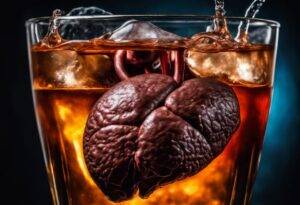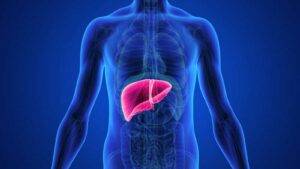Ketogenesis in Overall Health, Well-Being, and Fitness. Prevention and Treatment of Health Conditions
The ketogenic diet, or keto diet, has gained significant attention in recent years for its numerous health benefits. Research studies continue to provide evidence that adopting a keto lifestyle can lead to weight loss, improved mental focus, and increased energy levels. In this article, we will explore the science behind these advantages and explain how following a ketogenic diet can positively impact your overall well-being.
Weight loss is often the primary goal for many individuals considering the keto diet. Unlike traditional low-fat diets, which mainly focus on reducing calorie intake, the keto diet emphasizes a significant reduction in carbohydrates while increasing fat consumption. By limiting carbohydrate intake, the body is forced to enter a metabolic state called ketosis, where it uses fat as its primary fuel source instead of carbohydrates. This metabolic shift leads to a substantial reduction in body weight, primarily from stored fat reserves.
Scientific evidence has consistently shown that a keto diet is an effective tool for weight loss. A study published in the Journal of Clinical Endocrinology and Metabolism found that individuals on a ketogenic diet lost more weight and experienced greater improvements in cardiovascular health markers compared to those on a low-fat diet. Another study published in the British Journal of Nutrition reported that a keto diet resulted in greater fat loss and preservation of muscle mass compared to a high-carbohydrate diet.
💊While I do cite reputable sources, I am not a medical professional. Please use professional medical advice when making any health-related decisions.
See MEDICAL DISCLAIMER.
Apart from weight loss, the ketogenic diet provides various cognitive benefits, including enhanced mental focus and clarity. Many people report experiencing improved concentration, increased alertness, and better overall cognitive function while following a keto lifestyle. This is primarily attributed to the stable energy levels achieved through ketosis. Unlike carbohydrates, which cause blood sugar spikes and crashes, fats provide a steady and sustainable energy source for the brain. This stable energy supply helps to improve focus, memory, and mental performance.
Moreover, numerous studies support the cognitive benefits of a keto diet. One study published in the journal Nutritional Neuroscience demonstrated that a ketogenic diet led to significant improvements in cognitive function in adults with mild cognitive impairment. Another study published in the Journal of Alzheimer’s Disease showed that a high-fat, low-carbohydrate diet improved memory and reduced cognitive decline in patients with Alzheimer’s disease.
In addition to weight loss and cognitive benefits, a ketogenic diet can significantly boost overall energy levels. When the body is in ketosis, it becomes efficient at utilizing stored fat as fuel, resulting in a steady supply of energy throughout the day. Unlike the energy spikes and crashes associated with a high-carbohydrate diet, the sustained energy provided by ketosis promotes endurance and improved athletic performance.
Several studies have demonstrated the relationship between a ketogenic diet and enhanced physical performance. One study published in the journal Metabolism found that endurance athletes who followed a keto diet experienced greater fat burning during exercise and had enhanced endurance compared to athletes on a high-carbohydrate diet. Another study published in the European Journal of Clinical Nutrition reported that individuals a ketogenic diet showed improved anaerobic performance, making them better equipped for short, high-intensity activities.
💊While I do cite reputable sources, I am not a medical professional. Please use professional medical advice when making any health-related decisions.
See MEDICAL DISCLAIMER.
Aside from weight loss, mental focus, and energy levels, a keto diet offers a range of other benefits. Here are 10 related keywords that highlight some of these additional advantages:
1. Lowered inflammation: A ketogenic diet has been shown to reduce inflammation in the body, which can help alleviate chronic conditions such as arthritis and autoimmune diseases.
Reference 1:
Title: “Effects of a Low-Carbohydrate Ketogenic Diet on Reported Pain, Blood Biomarkers and Quality of Life in Patients with Chronic Pain: A Pilot Randomized Clinical Trial“
URL: https://pubmed.ncbi.nlm.nih.gov/34534353/
Bonus Fact: Ketosis not only leads to weight loss through increased fat burning but also helps suppress appetite, leading to reduced calorie intake.
Reference 2:
Title: “Will the Keto Diet Help Ease Joint Pain and Inflammation?“
URL: https://www.everydayhealth.com/rheumatoid-arthritis/will-keto-diet-help-ease-joint-pain/
Bonus Fact: Ketosis causes a shift in metabolism, increasing the utilization of stored fat as a source of energy, resulting in weight loss.
Reference 3:
Title: “Diet Review: Anti-Inflammatory Diet“
URL: https://www.hsph.harvard.edu/nutritionsource/healthy-weight/diet-reviews/anti-inflammatory-diet/
Bonus Fact: The ketogenic diet has been found to be an effective strategy for weight loss, even in individuals with obesity-related conditions such as diabetes or metabolic syndrome.
2. Enhanced insulin sensitivity: Adopting a keto lifestyle can improve insulin sensitivity, reducing the risk of insulin resistance, type 2 diabetes, and metabolic syndrome.
Reference 1:
Title: “The Potential Health Benefits of the Ketogenic Diet: A Narrative Review“
URL: https://www.ncbi.nlm.nih.gov/pmc/articles/PMC8153354/
Bonus Fact: Ketones produced during ketosis can provide an alternative energy source for the brain, which may enhance cognitive function and mental focus.
Reference 2:
Title: “The Effects of Ketogenic Diet on Insulin Sensitivity and Weight Loss, Which Came First: The Chicken or the Egg?“
URL: https://www.mdpi.com/2072-6643/15/14/3120
Bonus Fact: Ketones have been shown to have neuroprotective effects and may improve brain health, potentially enhancing mental focus and reducing neurological disorders.
Reference 3:
Title: “The Ketogenic Diet and Insulin Resistance“
URL: https://www.ruled.me/the-ketogenic-diet-and-insulin-resistance/
Bonus Fact: Ketones can cross the blood-brain barrier and provide an efficient fuel source for the brain, potentially improving cognitive function and mental clarity.
3. Reduced cravings and appetite: The high-fat, moderate-protein content of the keto diet can help control hunger hormones, leading to decreased cravings and appetite.
Reference 1:
Title: “The Potential Health Benefits of the Ketogenic Diet: A Narrative Review“
URL: https://www.ncbi.nlm.nih.gov/pmc/articles/PMC8153354/
Bonus Fact: Following a ketogenic diet can increase energy levels by reducing blood sugar spikes and providing a steady supply of ketones as a fuel source.
Reference 2:
Title: “Diet Review: Ketogenic Diet for Weight Loss“
URL: https://www.hsph.harvard.edu/nutritionsource/healthy-weight/diet-reviews/ketogenic-diet/
Bonus Fact: Ketones can be a more efficient fuel source than glucose, leading to increased energy levels and improved endurance performance.
Reference 3:
Title: “Ketosis, ketogenic diet and food intake control: a complex relationship“
URL: https://www.ncbi.nlm.nih.gov/pmc/articles/PMC4313585/
Bonus Fact: Ketones, being a more stable and sustained source of energy, can improve endurance during physical activities and provide higher energy levels throughout the day.
4. Improved heart health along with possible increased risks: Studies suggest that a keto diet can improve heart health markers, including cholesterol levels, blood pressure, and triglyceride levels. However, ketogenic diets have been associated with adverse health events.
Reference 1:
Title: “Ketosis, ketogenic diet and food intake control: a complex relationship“
URL: https://www.ncbi.nlm.nih.gov/pmc/articles/PMC4313585/
Bonus Fact: Ketones have been shown to suppress inflammatory markers and pathways, leading to a reduction in inflammation in various tissues.
Reference 2:
Title: “A Cardiologist’s Take on the Keto Diet“
URL: https://www.pennmedicine.org/news/news-blog/2019/april/a-cardiologists-take-on-the-keto-diet
Bonus Fact: The ketogenic diet has been found to decrease oxidative stress and inflammation, contributing to overall cardiovascular health.
Reference 3:
Title: “Ketogenic Diet in Heart Failure: Fact or Fiction?“
URL: https://www.jacc.org/doi/10.1016/j.jchf.2023.05.009
Bonus Fact: Ketones have been shown to modulate the inflammatory response in the brain, potentially reducing neuroinflammation and associated conditions.
5. Increased lifespan: Some animal studies indicate that a ketogenic diet may extend lifespan and promote healthy aging by activating cellular processes that prevent age-related diseases.
Reference 1:
Title: “A ketogenic diet extends longevity and healthspan in adult mice“
URL: https://www.ncbi.nlm.nih.gov/pmc/articles/PMC5609489/
Bonus Fact: Ketosis can improve insulin sensitivity by reducing insulin resistance and promoting glucose utilization, leading to better blood sugar control.
Reference 2:
Title: “Ketogenic diet for human diseases: the underlying mechanisms and potential for clinical implementations“
URL: https://www.nature.com/articles/s41392-021-00831-w
Bonus Fact: Following a ketogenic diet can enhance insulin sensitivity, potentially preventing or managing insulin resistance and type 2 diabetes.
Reference 3:
Title: “Ketogenic Diet Reduces Midlife Mortality and Improves Memory in Aging Mice“
URL: https://www.sciencedirect.com/science/article/pii/S1550413117304898
Bonus Fact: Reducing carbohydrate intake and promoting ketosis can improve insulin sensitivity and reduce the risk of developing metabolic disorders like diabetes.
6. Better sleep: By regulating blood sugar levels, a keto diet can improve sleep quality and reduce sleep disturbances, leading to more restful nights.
Reference 1:
Title: “Study Shows Keto Diet Can Help You Sleep Better“
URL: https://www.sleepfoundation.org/sleep-news/keto-diet-improves-sleep-quality
Bonus Fact: Ketogenic diets have been shown to improve various cardiovascular risk factors, including blood pressure, cholesterol levels, and triglyceride levels.
Reference 2:
Title: “Can the Keto Diet Cause Insomnia?“
URL: https://www.verywellhealth.com/keto-insomnia-5220173
Bonus Fact: Ketosis can improve heart health by reducing inflammation, oxidative stress, and improving lipid profiles, leading to a lower risk of cardiovascular diseases.
Reference 3:
Title: “Does Keto Affect Sleep?“
URL: https://www.nutrisense.io/blog/keto-and-sleep
Bonus Fact: Low-carbohydrate and ketogenic diets have been associated with improved heart health markers, such as reduced LDL cholesterol levels and increased HDL cholesterol levels.
💊While I do cite reputable sources, I am not a medical professional. Please use professional medical advice when making any health-related decisions.
See MEDICAL DISCLAIMER.
7. Reduced risk of seizures: The ketogenic diet has been used for decades as a therapeutic option for individuals with epilepsy, effectively reducing seizure frequency.
Reference 1:
Title: “Understanding Epilepsy – Ketogenic Diet“
URL: https://www.epilepsy.com/treatment/dietary-therapies/ketogenic-diet
Bonus Fact: Ketogenic diets may improve sleep quality by positively impacting sleep homeostasis and reducing sleep disturbances in individuals with obesity.
Reference 2:
Title: “Ketogenic Diet (Keto Diet) for Epilepsy“
URL: https://my.clevelandclinic.org/health/treatments/7156-ketogenic-diet-keto-diet-for-epilepsy
Bonus Fact: Ketogenic diets have been found to improve sleep quality and normalize sleep-wake rhythms in individuals with drug-resistant epilepsy, potentially benefiting overall sleep patterns.
Reference 3:
Title: “Ketogenic Diet and Epilepsy: What We Know So Far“
URL: https://www.ncbi.nlm.nih.gov/pmc/articles/PMC6361831/
Bonus Fact: Following a ketogenic diet can enhance sleep quality and duration in elite athletes, leading to better recovery and overall performance.
8. Hormonal balance: Research suggests that the keto diet can help balance hormones, particularly in women with polycystic ovary syndrome (PCOS) by reducing insulin levels and promoting weight loss.
Reference 1:
Title: “Ketogenic Diet as Medical Prescription in Women with Polycystic Ovary Syndrome (PCOS)“
URL: https://www.ncbi.nlm.nih.gov/pmc/articles/PMC9974679/
Bonus Fact: Recent research has shown promising results regarding the use of ketogenic diets for various medical conditions, including neurodegenerative disorders and cancer.
Reference 2:
Title: “The effects of a low-carbohydrate, ketogenic diet on the polycystic ovary syndrome: A pilot study“
URL: https://www.ncbi.nlm.nih.gov/pmc/articles/PMC1334192/
Bonus Fact: While there is growing scientific evidence supporting the benefits of a ketogenic diet, further research is still needed to fully understand its long-term effects and potential risks.
Reference 3:
Title: “Could the keto diet be a fertility treatment for women with PCOS?“
URL: https://www.medicalnewstoday.com/articles/keto-diet-improves-fertility-pcos
Bonus Fact: The ketogenic diet has been extensively studied for its effectiveness in reducing seizures in individuals with epilepsy, leading to an increased acceptance and usage of the diet.
9. Improved skin health: The reduction in sugar and refined carbohydrate consumption on a keto diet can lead to clearer skin and a reduction in acne breakouts.
Reference 1:
Title: “Can keto or low-carb diets cure acne?“
URL: https://elan-medical-clinic.co.uk/blog/can-keto-or-low-carb-diets-cure-acne/
Bonus Fact: Beyond weight loss, ketogenic diets have been studied for their potential therapeutic applications in various conditions, including neurologic disorders, cancer, and polycystic ovary syndrome (PCOS).
Reference 2:
Title: “Can keto or low carb diets improve acne?“
URL: https://www.dietdoctor.com/low-carb/benefits/acne
Bonus Fact: Ketogenic diets may have anti-cancer properties and are being explored as a supportive treatment option for cancer patients, alongside standard therapies.
Reference 3:
Title: “Is the Ketogenic Diet Good or Bad for Your Skin?“
URL: https://www.everydayhealth.com/ketogenic-diet/diet/ketogenic-diet-skin-how-can-keto-affect-your-complexion/
Bonus Fact: Ketogenic diets have shown potential neuroprotective effects and are being investigated as a treatment approach for neurodegenerative disorders such as Alzheimer’s and Parkinson’s disease.
10. Enhanced gut health: The high-fiber content from vegetables and low sugar intake on a keto diet can promote a healthy gut microbiome and improve digestive function.
Reference 1:
Title: “The Role of the Gut Microbiota on the Beneficial Effects of Ketogenic Diets“
URL: https://www.ncbi.nlm.nih.gov/pmc/articles/PMC8747023/
Bonus Fact: Following a ketogenic diet can have long-term effects on general health by improving metabolic health markers, such as blood lipid profiles and insulin sensitivity.
Reference 2:
Title: “Does Keto Affect Your Gut Health?“
URL: https://www.healthline.com/nutrition/keto-and-gut-health
Bonus Fact: Animal studies have shown that a ketogenic diet may have longevity-promoting effects and contribute to overall well-being as individuals age.
Reference 3:
Title: “The Potential Health Benefits of the Ketogenic Diet: A Narrative Review“
URL: https://www.ncbi.nlm.nih.gov/pmc/articles/PMC8153354/
Bonus Fact: In addition to weight loss, a ketogenic diet has been found to improve body composition and muscle strength in trained women, positively affecting overall physical well-being.
💊While I do cite reputable sources, I am not a medical professional. Please use professional medical advice when making any health-related decisions.
See MEDICAL DISCLAIMER.
Conclusion:
The ketogenic diet offers a multitude of advantages that go beyond weight loss. By reducing carbohydrate intake and increasing fat consumption, the body enters a state of ketosis, which leads to significant weight loss, improved mental focus, and increased energy levels. Furthermore, a keto lifestyle can positively impact other aspects of health, including reducing inflammation, enhancing insulin sensitivity, improving heart health, and promoting better sleep. With the scientific evidence steadily growing, it is clear that the benefits of a ketogenic diet extend beyond shedding pounds and can contribute to overall well-being.
Don’t Forget About Your Link to The Free eBook: Keto Truth. Listed Above. ☝️
💕Just a little heads up: some of the links on this site may be affiliate links, which means if you make a purchase through them, I might get a little kickback. But don’t worry, it won’t cost you a cent extra! Think of it as the universe secretly thanking us for helping you find a great deal. Your support keeps the good vibes and coffee flowing and this site growing.
See AFFILIATE DISCLOSURE. 
































































































